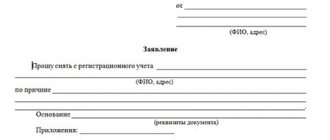Author: Dmitry03/25/2021
The question of what property belongs to a particular person or company arises for a variety of reasons. There are several ways to obtain such information. Each of them is associated with a certain kind of nuances and has limitations. Learn more about the specifics of obtaining information about existing property, possible difficulties associated with this, and choosing the best option below.
Why do you need to know about the property of an individual?
The most common situations where this is necessary include:
- when entering into inheritance rights, the applicant would like to know about all the property to which he is entitled;
- to resolve controversial issues in the absence of a will and the presence of several applicants;
- if it is necessary to collect a debt, information about the general property of the debtor is necessary to resolve the issue of the advisability of collection in court;
- in the case when they ask for a large amount of debt, the lender needs to make sure that there is appropriate collateral;
- upon divorce, when there are doubts that one of the parties knows everything about the property of the other.
Where to find out information about owned property
All information about the property owned is in the Unified State Register of Real Estate. There are several ways to obtain them. These include:
- request an extract from the Unified State Register of Real Estate on the website;
- visit to Rosreestr;
- visit to the multifunctional center.
There is another way - contacting the tax service to obtain the information on the TIN. Information about movable property - about personal vehicles - can be found upon request to the traffic police or required to be established through the court.
It is usually impossible to obtain information about the availability of jewelry, household appliances, and interior items.
What are the rights and obligations of the owner of a residential premises?
Lawyer Antonov A.P.
The owner of a residential premises has the right to own it, use it for residence or professional activities, and enter into transactions with it within the limits established by law. The owner is obliged to pay the costs of maintaining the housing, maintain it in proper condition, respect the rights and legitimate interests of neighbors, as well as the rules for the use of residential premises.
Types of residential premises In accordance with housing legislation, residential premises include a residential building (part of a residential building), apartment (part of an apartment) and a room (Part 1 of Article 16 of the Housing Code of the Russian Federation). A residential building (individual housing construction facility, individual residential building) is understood as a separate building with no more than three above-ground floors, no more than 20 meters in height, which consists of rooms and auxiliary premises intended to satisfy citizens’ household and other needs, associated with their residence in such a building, and is not intended for division into independent real estate objects (part 2 of article 16 of the RF Housing Code; clause 39 of article 1 of the RF Civil Code). An apartment is a structurally separate room in an apartment building, providing direct access to the common areas in such a building and consisting of one or more rooms, as well as auxiliary premises intended to satisfy citizens' household and other needs related to their residence in such a building. in a separate room (Part 3 of Article 16 of the Housing Code of the Russian Federation). A room is recognized as a part of a residential building or apartment intended for use as a place of direct residence of citizens in a residential building or apartment (Part 4 of Article 16 of the Housing Code of the Russian Federation).
Rights of the owner of residential premises The owner of residential premises has the right to own, use and dispose of it (clause 1 of article 209, clause 1 of article 288 of the Civil Code of the Russian Federation; part 1 of article 30 of the Housing Code of the Russian Federation). He has the right to perform any actions in relation to his property that do not contradict the law and do not violate the rights and legally protected interests of other persons. In particular, the owner can alienate his housing to other persons - sell, donate, bequeath, transfer as a contribution to the authorized capital of organizations, pledge the housing, transfer it to trust management and dispose of it in any other way (clauses 2, 4 of Art. 209, Article 1012, paragraph 1 of Article 1013 of the Civil Code of the Russian Federation). The owner of housing can use it for personal residence and residence of his family members, as well as provide housing to other persons for ownership and (or) use under rental agreements, free use or on other legal grounds (clause 2 of article 288 of the Civil Code of the Russian Federation ; part 2 of article 30 of the Housing Code of the Russian Federation). Along with living, the owner of a residential premises has the right to use it to carry out professional or individual entrepreneurial activities, provided that such use does not violate the rights and legitimate interests of other citizens, as well as the requirements that the residential premises must meet (clause 4 of the Rules, approved by Government Decree RF dated January 21, 2006 N 25). The owner of a residential premises has the right to transfer to another person the right to dispose of the residential premises on the basis of a notarized power of attorney (clause 1 of Article 185, clause 1 of Article 185.1, clause 2 of Article 209 of the Civil Code of the Russian Federation). Also, the owner of a residential premises has the rights of ownership, use and disposal, within established limits, of the common property of an apartment building (Article 290 of the Civil Code of the Russian Federation; Article 36 of the Housing Code of the Russian Federation). The owner of a residential premises has the right to take part in a general meeting of owners of premises in an apartment building, both personally and through a representative (Part 1 of Article 48 of the Housing Code of the Russian Federation). Also, the owner of a residential premises has the right to become a member of the HOA formed to manage an apartment building (Part 1, Article 135, Parts 1, 2, Article 143 of the Housing Code of the Russian Federation).
Responsibilities of the owner of residential premises The owner must exercise his rights in relation to the residential premises in accordance with its purpose and the limits of its use established by law. For example, the placement of industrial production and hotels in residential premises is not allowed (clause 3 of article 288 of the Civil Code of the Russian Federation; part 1 of article 30 of the Housing Code of the Russian Federation; clause 4 of Rules No. 25). The owner bears the burden of maintaining the property he owns (Article 210 of the Civil Code of the Russian Federation). In particular, he is obliged to pay for housing and utilities, and pay property tax for individuals. The obligation of the owners of premises in an apartment building to maintain common property has also been established (Part 3 of Article 30, Clause 5 of Part 2 of Article 153 of the RF Housing Code; Article 400, Clauses 1, 2, Clause 1 of Article 401 of the Tax Code of the Russian Federation; clause 28 of the Rules, approved by Decree of the Government of the Russian Federation of August 13, 2006 N 491). The owner of the housing is obliged to maintain it in proper condition, preventing mismanagement of it, to comply with the rights and legitimate interests of neighbors, the rules for the use of residential premises, as well as the rules for maintaining the common property of the owners of premises in an apartment building. Thus, the owner must carry out the reconstruction or redevelopment of residential premises in compliance with the requirements of the law and in agreement with the local government (Part 1, Article 26, Part 4, Article 30 of the Housing Code of the Russian Federation). For the owner of a residential premises, decisions of the general meeting of owners of premises in an apartment building, adopted in the prescribed manner (Part 5, Article 46 of the Housing Code of the Russian Federation), are mandatory.
Responsibility of the owner of a residential premises In case of non-payment of mandatory payments due to the presence of residential premises in the property of a citizen, the debt can be forcibly collected at the expense of the property of the owner (Article 48 of the Tax Code of the Russian Federation; Article 69 of the Law of October 2, 2007 N 229-FZ). If the owner of a residential premises uses it for other purposes, systematically violates the rights and interests of neighbors, or mismanages the housing, allowing it to be destroyed, the local government body may warn the owner of the need to eliminate the violations, and also set a proportionate period for repairing the premises. If the owner, after warning, continues to violate the rights and interests of neighbors or uses the property for other purposes or fails to make the necessary repairs without good reason, the court, at the request of the local government body, may decide to sell such premises at public auction with payment to the owner of the proceeds from the sale minus expenses for the execution of a court decision (Article 293 of the Civil Code of the Russian Federation; clause 10 of the Resolution of the Plenum of the Supreme Court of the Russian Federation dated July 2, 2009 N 14). If the owner carries out unauthorized redevelopment and (or) reconstruction of the residential premises, violating the rights and legitimate interests of citizens or creating a threat to their life or health, if the owner refuses to restore the residential premises to their previous condition, it can also be sold at public auction (clause 1 of Part 1. 5, Article 29 of the Housing Code of the Russian Federation).
Sincerely, lawyer Anatoly Antonov, managing partner of the law firm Antonov and Partners.
Still have questions for your lawyer?
Ask them right now here, or call us by phone in Moscow +7 (499) 288-34-32 or in Samara +7 (846) 212-99-71 (24 hours a day), or come to our office for a consultation (by pre-registration)!
How to find out about owned property from the Unified State Register of Real Estate
This method seems the most obvious. A request to the Unified State Register of Rights can be made, if necessary, to get acquainted with information about property owned by another person. The list of data obtained in this way includes the following parameters:
- type and description of the object;
- date of its registration;
- cadastral number;
- condition of the property; whether there are encumbrances or other restrictions on use.
Obtaining information about the property of an individual can be obtained from the MFC or on the State Services website.
How to find out the owner of an apartment through third-party services
There are plenty of services on the network that offer to simplify obtaining issues from the Unified State Register of Real Estate in order to find out the full name of the owner of the apartment, as well as other data. Here are a couple of visually good and convenient options that we found on the Internet: rosreester.net and egrp365.ru.
Please note: we are not responsible for your funds and data that you transfer to third-party services. Information about them is provided for informational purposes only, and it is safest to contact official federal authorities.
To check their performance, some data about the apartment can be obtained quickly and free of charge. Such services usually pull them from an open cadastral map (extremely rare, but they may be partially outdated), which still simplifies the initial verification of real estate.
You can quickly and free of charge get a cadastral number, find out the postal code, get acquainted with the official area of the apartment, its cadastral value and even a preliminary tax calculation based on the total cost. Everything else can be found out after payment has been made.
They promise to make a report with the name of the apartment owner through rosreester.net for 350 rubles. within a period of 6–8 to 48 hours (the service estimates a complete inspection of the apartment at 3,450 rubles). On egrp365.ru for 390 rubles. They promise to handle it in 2-24 hours, and for 989 rubles. guarantee a response within 5–45 minutes.
The appearance of the documents received is approximately the same for each service. It does not differ in the availability of data - only in the fonts used and general visual content. For example, a full check via rosreester.net is provided in a beautiful color PDF with highlighted points.
Contacting the Federal Tax Service
Every person has such a document as TIN. The identification number is unique, and therefore collecting information about property using it has significant advantages.
The fact is that searching for property by last name can in some cases give erroneous results. This happens when the full name matches. Using the TIN prevents receiving erroneous information.
You can find out the necessary data when contacting the tax service if you have a passport and documents confirming the right to receive such information.
The official registration of real estate is handled by Rosreestr
“Rosreestr” is the abbreviated name of the “Federal Service for State Registration, Cadastre and Cartography.” This is an official federal executive body that organizes a unified system of cadastral registration of real estate and rights to its property.
The prototype of “Rosreestr” was “Rosregistration”, which was created after the corresponding presidential decree in 2004. In 2008, this body received its current name, and from March 1, 2009, after the end of the transition period, it began to fulfill the duties of Rosnedvizhimost and Roscartography.
Rosreestr has a special online service for checking real estate before purchasing. In addition to information about the owner of the apartment, it can also be used to obtain information about other real estate, check a land plot, and estimate the cadastral value for calculating property taxes.
Starting from 2021, before purchasing or selling any property, it is mandatory to obtain an extract from Rosreestr. It is an official document with the seal of the structure, which is intended to determine the real current owner of the property.
Possible problems when independently collecting property information
Data on a person's property is not publicly available. The Registration Law clearly defines the category of persons who have the right to know about objects owned by a certain person. This:
- the owner himself;
- his representative with a certified power of attorney;
- judicial and law enforcement officials;
- government leaders (to investigate corruption cases);
- citizens with supporting documents confirming receipt of inheritance;
- employees of the Accounts Chamber of the Russian Federation.
If you are not someone on this list, then searching for property using any of the above methods will become an almost impossible task.
In addition, an extract from the Unified State Register may not contain all the necessary information, and the time frame for receiving it is quite long.
Online method No. 2 - on the website of Rosreestr and State Services
Neither the Rosreestr website nor the State Services website shows the owners of this or that property in the public domain. You can make a paid request for them and the same extract from the Unified State Register of Real Estate will be sent about the main characteristics and registered rights to the property, which I explained above in method No. 1. That's why I combined Rosreestr and State Services into one method. I described in more detail how to obtain information about owners using these services in separate articles: option with the Rosreestr website - link; option from State Services - link.
On State Services you can order an extract only in electronic form for 290 rubles. On the Rosreestr website you can order a paper extract for 460 rubles. and it is sent on average after 3 days, the electronic one costs the same 290 rubles. and it is sent in 2 days. Below I have inserted instructions for ordering an extract on the Rosreestr website, which I copied from my article from here:
- Go to the Rosreestr website page - https://rosreestr.gov.ru/wps/portal/p/cc_present .
- On the page that opens (picture below):
- In the “Property type” field, select “Apartment”.
- In “Located at” fill in the address of the apartment.
It is not necessary to indicate the cadastral number. If you need Moscow or St. Petersburg, then enter that in the “Region” field. Next, enter the name of the area (except Moscow). If you need a lane, crossing, highway, etc., then in the “Street” field, select the one you need from the drop-down list. On the right, enter only the name. For clarity, I have prepared examples of entering apartment addresses:
,
,
,
. - Select the form for providing an extract . Available in the form: “Links to an electronic document” - an extract will be sent in electronic form to an email address; “Paper document by post” - receive it at the post office in paper form; “Paper document in the territorial department” - receive in the territorial departments of Rosreestr in paper version.
- Enter your receiving address . If you selected: “Links to an electronic document” - enter your email address; “Paper document by post” - enter the postal address; “Paper document in the territorial department” - select the Rosreestr department from the list (not available in all regions). At the time of writing, a territorial department can only be selected in Moscow and St. Petersburg; in other regions, a paper extract can only be received by mail.
- Enter the characters from the picture (captcha).
- Click on “Go to applicant information” .
- Please indicate the type of applicant, passport details and email address. It is enough to indicate your last name, first name, passport number and date of issue; the rest is optional. When ordering, I myself select the type of applicant - “individual”, the category of applicant - “other person” and fill in the passport data below. Here
.
Check the box “I agree to the transfer of personal data to Rosreestr” and click on “Proceed to the documents attached to the request” . - Click on "Go to data verification".
- Click on "Send request".
- The request will be registered and the page will show request number indicatedwhich needs to be remembered.
- In a few minutes to the specified email inbox you will receive an email about pending payment with the application number and payment code. In the letter itself click on "link".
- On the page that opens, click on the link "Please enter payment code". Your application number should be automatically indicated; if not, enter it yourself. The application number is indicated in the email. Enter the numbers from the picture and click on the “Check” button.
- Click on “Specify payment code”, enter the payment code (indicated in the letter) in the field that appears and click on the “Proceed to payment” button.
- Pay for the statement. To do this, at the bottom of the page, select a payment method - by bank card, Qiwi wallet, Qiwi terminal or from a mobile phone account. You can pay with a bank card only through “Payment for government services”. The cost of a paper statement for individuals is 460 rubles, in electronic form - 290 rubles. For legal entities, a paper one costs 1270 rubles, and an electronic one 820. There is a commission and its size depends on the payment method.
- According to the law, within 3 working days (in practice it happens longer) an extract from the Unified State Register will be sent from Rosreestr using the chosen method. Having your Russian passport and order number with you, you can pick up a paper statement at the post office or at the territorial department of Rosreestr in your city or region. If you ordered an electronic statement, it will be sent by email in an unreadable xml format. To convert the xml file of the statement into a readable form and print it, read the instructions at this link.
(to enlarge the picture, click on it)
Order service
It is known that reliable and timely information can become one of the main arguments in any dispute. Placing an order to receive information about the property of a specific person on our website is the best option for those who are used to solving important problems quickly and with maximum convenience.
Complete information about a particular person’s property will help:
- receive by inheritance all movable and immovable objects to which you are entitled;
- in the event of a divorce, count on half of everything that is owned by the spouse;
- sue the debtor, knowing for sure that the expenses will be reimbursed at the expense of the real estate or car that belongs to him.










